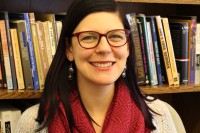Does having two jobs make you bivocational?
A few years ago I was interviewing a couple of church planters, and the conversation turned to finances. The husband-and-wife team, Juan and Cirila Lugo, had paid out-of-pocket for many expenses when the congregation began meeting. They were pleased that it had become self-sufficient enough to hire Juan full time. Cirila told me, without a hint of complaint, about writing sermons on her lunch break while she drove a delivery truck six days a week.
But she didn't call herself bivocational, and rightly so. No doubt she and many pastors in similar situations bring their ministry gifts into the other setting in which they serve, whether that’s counseling or truck driving. But if a pastor would gladly leave behind that second role should her congregation find enough funding, chances are she doesn’t have two vocations—she has two jobs.
Not that having two jobs is all bad. Depending on the second job, it can create more balance between human interaction and solitary projects than full-time congregational work often allows. For introverts in ministry—remember that conversation last year?—it can create more time and space alone, time for us to do our thinking and recharging. And a second source of income is handy during transitions.
Yet I wonder if we’re doing ourselves a disservice when we fail to distinguish between needing a second job and discovering two vocations.
The small Christian liberal-arts college that I attended wasted no time in instructing students on the difference between a career and a calling. Beginning in first-year communications colloquium, we listened for the voice of vocation. But by graduation, the voice I heard told me it was good enough to find a job I could do reasonably well that didn’t exploit people or harm the environment.
The next year, at such a job, I was returning home from a reporting assignment—on global debt—and I felt a sense of purpose and fulfillment. Ah, I thought, a bit sheepishly, this must be what people quoting Buechner are talking about.
Having had that moment, I was confused at first when friends pointed me toward seminary. (Some even tipped off their pastor to take me out for coffee. She’s now a cherished mentor.) I did have an inkling that I might want to be a chaplain. And divinity school would give me a firmer grasp on theology, ethics, and biblical interpretation, which would be useful in my journalism work.
So off I went. I signed up for Clinical Pastoral Education in the summer after my first year. At an inner-city top-level trauma center with a largely impoverished patient population, the world’s deep hunger was on full display. Then one day I stepped out of the hospital after 30 hours of CPE group, seeing patients, a night on-call, and then more CPE group, and I felt it: a deep gladness, almost elation. Sleeplessness may have been a factor on that particular occasion, but in subsequent years I’ve had many moments of satisfaction and even joy, sometimes at the end of grueling days.
Yet after graduation and several months of leading a small hospital’s spiritual care department during a hiring search for a new director, I felt pulled back to journalism. The Century was doing its own search, and hired me as assistant editor. Now I’m settling into spending four days a week at the Century and one or two at the hospital as a staff chaplain with our new director.
I’m still figuring out what it means for me to have two callings. But it has already given me greater sympathy for those who have one. Let’s find ways to support full-time ministry in our congregations and denominations—so that pastors who aren’t actually bivocational won’t have to pursue another career to support their true calling.





